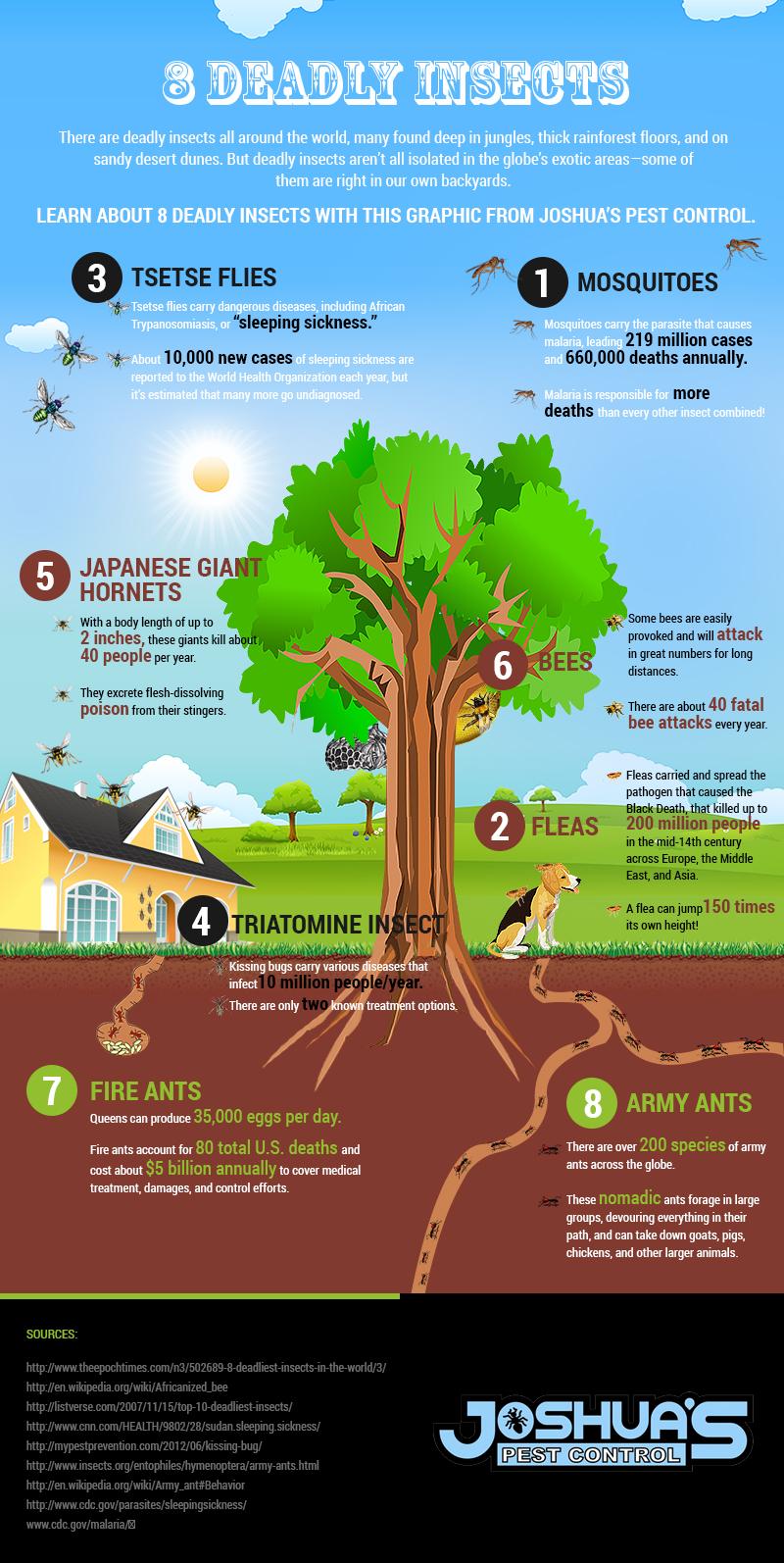Shielding Your Garden From Pests: Techniques For A Pest-Free Outdoor Area
Shielding Your Garden From Pests: Techniques For A Pest-Free Outdoor Area
Blog Article
Content Writer-Dunlap Merritt
Visualize your yard as a haven, a location of harmony and charm. However, https://www.globenewswire.com/news-release/2023/06/26/2694733/0/en/Exterminating-And-Pest-Control-Services-Global-Market-Report-2023.html of outdoor insects can swiftly disrupt this idyllic picture. What happens if there were straightforward yet reliable methods to maintain these unwanted visitors at bay and protect your garden oasis? By following a couple of sensible suggestions and implementing natural approaches, you can produce a harmonious outdoor room where your plants can grow undisturbed.
Natural Parasite Deterrents
To keep pests far from your yard normally, plant aromatic natural herbs like mint and lavender. These fragrant plants not only include elegance to your yard yet likewise serve as efficient insect deterrents. Parasites like insects, flies, and even some garden-damaging insects are repelled by the solid aromas given off by these natural herbs. Just placing them purposefully around your yard can aid create an all-natural barrier against unwanted bugs.
Along with mint and lavender, consider growing various other natural herbs like rosemary, basil, and lemongrass to better enhance your garden's pest-proofing abilities. These herbs not only function as all-natural repellents yet additionally have the added benefit of being useful in cooking or crafting self-made solutions.
Strategic Plant Placement
Take into consideration the layout of your garden and the sorts of plants you have to purposefully put them for maximum pest-proofing efficiency.
Begin by organizing plants with comparable resistance to parasites together. By doing this, you can develop a natural barrier that prevents parasites from spreading out throughout your yard.
Additionally, positioning pest-repelling plants like marigolds, lavender, or mint near even more at risk plants can help protect them. Tall plants, such as sunflowers or corn, can work as a shield for much shorter plants against parasites like bunnies or ground-dwelling bugs.
Bear in mind to leave enough area between plants to enhance air flow and lower the risk of illness that pests might carry.
Additionally, think about growing Click Webpage -smelling natural herbs like rosemary or basil near susceptible plants to puzzle parasites' senses and make it harder for them to find their targets.
Efficient Bug Control Techniques
For combating yard parasites efficiently, applying a multi-faceted parasite control technique is essential. Beginning by motivating rottler pest control prices -natural killers like birds, ladybugs, and hoping mantises to help keep pest populations in check. Presenting plants that draw in these useful bugs can aid in pest control. In addition, exercising good garden hygiene by removing debris and weeds where pests could conceal can make your garden less welcoming to undesirable visitors.
Think about making use of physical barriers such as row cover materials or netting to safeguard at risk plants from parasites like caterpillars and birds. Using natural chemicals like neem oil or insecticidal soap can also work against specific insects while being less dangerous to useful pests and the atmosphere. It's crucial to turn your plants each season to avoid the buildup of parasite populaces that target particular plants.
Regularly evaluate pest control fort collins for signs of bug damages so you can do something about it immediately. By incorporating these techniques and remaining vigilant, you can effectively regulate yard parasites and delight in a successful, pest-free yard.
Verdict
So, there you have it - with the ideal methods, you can keep pesky outside pests away from your yard and help your plants grow.
Did you understand that growing mint has been revealed to fend off insects and various other insects, reducing the requirement for harmful pesticides by approximately 60%?
By including natural deterrents and smart growing strategies, you can produce a beautiful and pest-resistant garden sanctuary for you to delight in.
